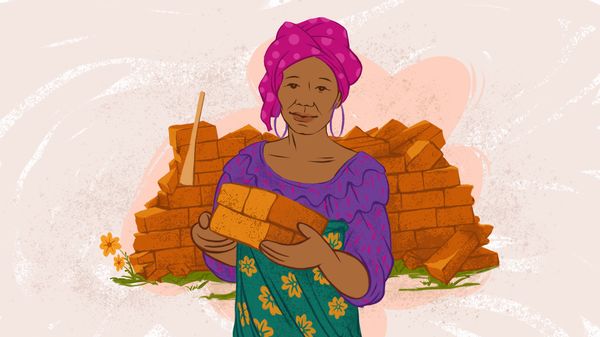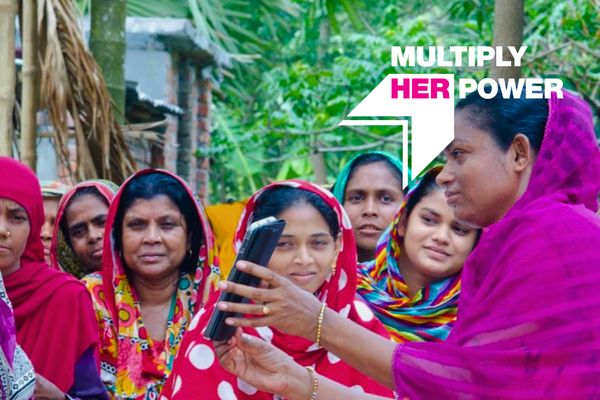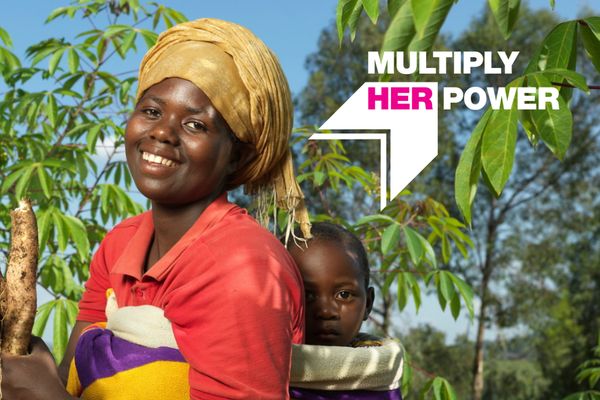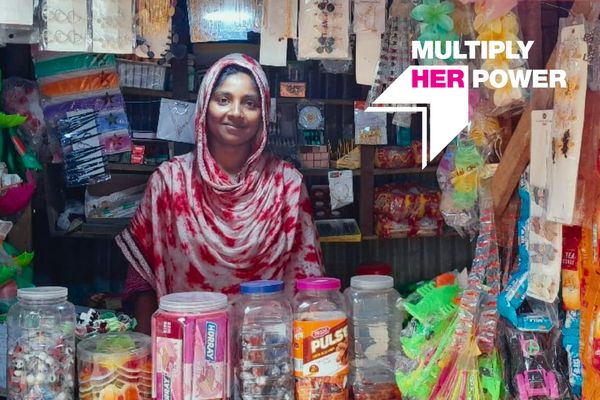Despite Tanzania’s economic progress—culminating in its transition from a low-income to a lower-middle-income country back in July 2020—gender disparities in income, education, and power structures remain. Women continue to be less likely than men to have access to financial institutions.
In fact, according to the Global Findex Database 2021, nearly three out of four adults in Tanzania do not have an account in a financial institution, with women less likely than men to have an account. Closing these gaps requires more than national growth. It demands efforts that reach those at the last mile. So what does it take to bridge the gender gap at that level?
Let’s take a look at the case of Hereith Davis Karata. She is from Mbomole village in Tanzania’s Muheza district – a town approximately 197 miles from Dar es Salaam, where the above mentioned gender disparities continue to challenge women such as Hereith.
Hereith could only manage to study until Class 7 – pointing to a larger problem of gaps in girls’ access to continued education and making successful transitions to adulthood. Hereith was also compelled to marry young and went on to become a mother to four children. The lack of support from her husband, his poor spending habits often depleting their already minimal income, did not make matters any easier. Hereith needed more, to be able to care for her children, to give them a fair shot at their future, where they could access opportunities and build better lives for themselves.
What impact can a small loan have on a woman-led business?
In Hereith’s village, as in most other villages in Tanzania, houses are built with bricks made from mud – and so, to make an income, Hereith started making mud bricks at the back of her house.
The work was hard, but in Hereith’s own words, “This was the first step toward earning my own money. I want a better life for my children.”
So when Hereith found out through a BRAC community organizer in her village about a microfinance program designed specifically for women like her, she took an interest immediately. Clients, such as Hereith, typically utilize small loans to engage in various income-generating activities. They also go through a course on financial and digital literacy – how to save better, invest better and scale their small business. Hereith is currently in her fourth loan cycle – meaning her transactions are getting bigger, so are her investments, and shows her ability to repay all her loans so far.
Reports from The World Bank confirm that even though women-owned enterprises often outnumber those owned by men in Africa, women business owners often lack the collateral or paperwork needed to access financial services – services that would help them scale their businesses. According to the Lean Data survey 2023, 97% of our clients reported an improvement in their quality of life and 91% said they are able to save more. Furthermore, four out of five clients said they are accessing loans for the first time, highlighting that BRAC is fulfilling a critical gap in the market.
With her loan, Herieth poured her energy and expanded her brick-making business. Soon enough, she hired eight other people from her village, mostly women who needed jobs to take better care of their families. Proving to us again that investing in women is a force multiplier. Her greatest joy, however, came from seeing her children wearing their school uniforms every day.
The multiplier effect cannot be more visible – the impact of Hereith’s work went far beyond her family. Research backs the case too – when women work, they invest as much as 90% of their earnings back into their families, while men typically put in 35%.
Our work over the last five decades has made one thing clear: women’s economic empowerment is central to improving their status in society, realizing their rights, and starting businesses on an equal footing with men.
There are over 400,000 clients accessing finance and savings in BRAC Tanzania Finance Limited, 96% of whom are women.
We keep women at the forefront with tailored products and services. Hereith’s story is not a stand-alone case. Our work across Tanzania holds up the mirror to thousands of stories of women harnessing their entrepreneurial spirit and transforming their communities as soon as they are able to access finance and savings.
It is time to accelerate action for all women and girls, especially in the face of a global scaling back of women’s rights so they can live with equality and dignity.
The time to act is now.
Solomon William is acting communications manager at BRAC Tanzania Finance Limited.



